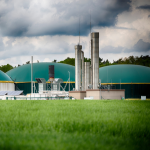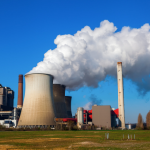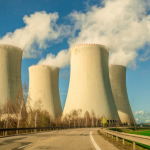Learn Everything About Clean Energy & More!
Check out our free energy glossaries and learn everything related to yoga!

Energy Glossaries
Some Recent Energy Glossary Articles
10 Best Solar-Powered Bug Zappers to Keep Your Outdoor Spaces Pest-Free
If you’re tired of pesky insects ruining your outdoor gatherings, solar-powered bug zappers might be the solution you need. These eco-friendly devices not only keep your space pest-free but also harness solar energy for efficient operation. With various options available, you can find one that fits your needs perfectly. Curious about which zappers stand out … Read more
10 Best Energy-Efficient Camping Stoves for Eco-Friendly Adventures
When planning your next camping trip, it’s essential to choose an energy-efficient stove that aligns with your eco-friendly goals. The right camping stove not only conserves fuel but also enhances your cooking experience in the great outdoors. From portable butane models to versatile dual fuel options, there are plenty of choices to take into account. … Read more
10 Best Solar-Powered Outdoor Speakers for Your Summer Soundtrack
When summer hits, your outdoor space deserves a soundtrack that elevates the vibe. Investing in solar-powered outdoor speakers can transform your patio or garden, offering both convenience and quality sound. With options that boast waterproof designs and seamless Bluetooth connectivity, you can enjoy music without worrying about the elements. Curious about which models stand out … Read more
10 Best Battery-Powered Camping Lights for Your Next Outdoor Adventure
When you’re gearing up for your next outdoor adventure, the right lighting can make all the difference. Battery-powered camping lights offer convenience and adaptability, ensuring you stay illuminated in the wilderness or during backyard gatherings. With various options available, from compact lanterns to robust rechargeable models, you’ll find something that fits your needs. But how … Read more
10 Best Portable Wind Generators for Eco-Friendly Power on the Go
When you’re on the move, finding reliable energy sources can be a challenge. Portable wind generators offer a practical solution, providing sustainable power for various needs. With options ranging from compact models to more robust kits, you can easily harness wind energy wherever you go. But how do you choose the right one? Let’s explore … Read more
10 Best Solar-Powered Camping Showers for a Refreshing Outdoor Experience
When you’re out camping, a warm shower can make all the difference in your experience. Solar-powered camping showers offer a convenient way to enjoy that invigorating cleanse in the great outdoors. From easy-to-use bags to rechargeable options, there’s a variety to suit your needs. You might wonder which ones stand out the most. Let’s explore … Read more
10 Best Foldable Solar Panels for Backpacking: Power Up Your Adventures
When you’re out in the wilderness, staying connected is essential. Foldable solar panels offer a lightweight and efficient way to power your devices while backpacking. With so many options available, choosing the right one can be overwhelming. You’ll want something that balances portability, efficiency, and durability. Let’s explore the top contenders that can keep your … Read more
10 Best Solar-Powered Tents for Eco-Friendly Camping Adventures
When it comes to camping, combining comfort with sustainability is more important than ever. Solar-powered tents offer a unique solution, allowing you to harness the sun’s energy while enjoying the great outdoors. You’ll find features that enhance your experience, from lights to charging ports. But with so many options on the market, how do you … Read more
10 Best Solar-Powered Coolers for Camping Adventures in 2025
When planning your next camping trip, choosing the right cooler can make all the difference in keeping your food and drinks fresh. Solar-powered options are becoming increasingly popular for their efficiency and portability. With various models like the Alpicool XD35 and Setpower AJ40, you can find the perfect fit for your outdoor needs. But what … Read more
10 Best Solar-Powered Camping Gear for Eco-Friendly Adventures
When you’re planning your next outdoor getaway, choosing the right camping gear can make all the difference. Solar-powered options not only provide reliable energy but also align with your eco-friendly values. From portable power stations to efficient lanterns, these tools enhance your adventure while minimizing your carbon footprint. Curious about which gear stands out regarding … Read more







